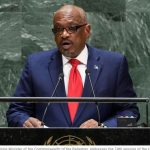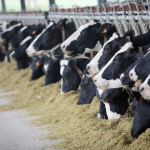Key Changes in International Agriculture and Rural Development Issues

Three Priority Areas in the Context of the 2030 Development Agenda

(InterPress Service) Some major changes in international agricultural and rural development over the last 30-40 years need to be taken into account in efforts to promote sustainable development and an inclusive rural transformation (IFAD 2016) as we approach the third decade of the millennium.
This opinion piece, drawing on a longer article published in Agriculture for Development Journal (Summer 2019 Issue), seeks to stimulate reflection and debate on how work to support agricultural and rural development can evolve to address key challenges and opportunities related to migration, sustainable urbanization and youth in a changing global policy context.
Current issues and challenges
While key themes have remained on the agenda such as enhancing productivity, environmental sustainability, inclusion and participation, availability and access to food and addressing trade issues, since the 1980s the global development landscape has evolved. The transformations occurring in the global economy and society are moving at a rapid pace, particularly in the context of the application of new technologies and innovations, information and communications technologies (ICTs) and digital approaches in agriculture or ‘digitalisation’ (Dahlberg Advisers and CTA 2019), all in an increasingly complex and globalised development context. A key question has become how do agricultural and rural development adapt in a world of rapid globalisation and urbanization to reduce hunger, food insecurity and contribute to eliminating poverty FAO 2019 and Jacquet et al, 2011)?
The roles of partnerships among all stakeholders to address food systems challenges and build resilience to shocks among smallholders are key. Smallholders constitute the majority of the world’s rural producers, and among these special attention is needed to empower women and youth and to address the challenges faced by vulnerable groups, including migrants, in the context of rapid transformations in the global economy and food systems.
Read more at: InterPress Service
Source: CARICOM TODAY

 Previous Post
Previous Post Next Post
Next Post